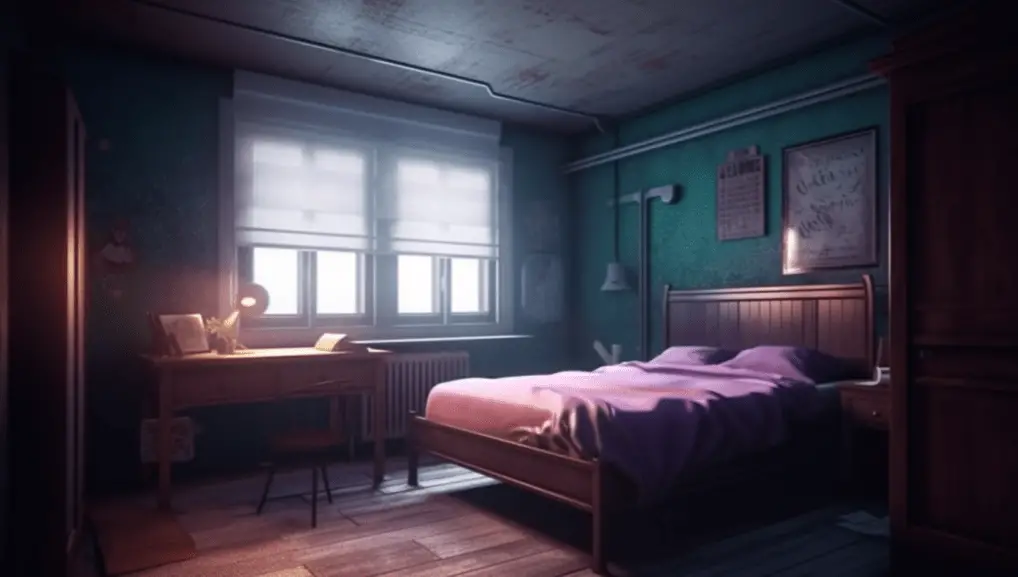In the era of widespread remote working, the concept of a workspace has radically transformed. Gone are the days when work was confined to the four walls of an office cubicle. Today, work can happen from anywhere – a quiet café in Paris, a serene beach in Bali, or a cozy Airbnb nestled in the heart of Berlin. If you’re a remote worker with an insatiable wanderlust, discovering the right kind of accommodation that blends work and leisure seamlessly is crucial. One such option that’s gaining traction is hostels, specifically their private rooms. This combination of affordability, comfort, privacy, and a sense of community makes private hostel rooms an enticing choice for the modern remote worker.
This post will be a little different, in that I’ll be addressing several questions I’ve seen come up regarding private rooms in hostels. Specifically, questions that can help other remote workers make a decision on whether to opt for a private room or dorm.
The Evolution of Hostels
Long thought of as shared spaces for backpackers, hostels have evolved to offer private rooms, providing a cost-effective and flexible option for those who value both privacy and community.
Is there 24/7 access to the building/room, in case I need to work late? While this can vary between hostels, most understand the needs of remote workers and provide 24/7 access to the building and private rooms. This allows you to work according to your own schedule without worrying about access restrictions.
The Case for Remote Work in Hostels
Hostels are not just about saving money. Their unique blend of private and shared spaces offers the perfect balance for remote work. Private rooms are often equipped with a desk and provide a quiet space for focused work. The communal areas, on the other hand, offer a chance to relax, network, and share experiences with other travelers.
Are there any communal spaces where I can work apart from my room? Yes, most hostels offer communal spaces such as lounges or dining areas where you can work. These shared spaces can provide a change of scenery and allow for interaction with other guests, promoting a community-centric working environment.
Is there a policy for quiet hours during typical working hours? Quiet hours policies vary from hostel to hostel. While some may implement quiet hours during the night to ensure a peaceful sleep environment for guests, many recognize the diverse schedules of their guests and promote a generally respectful noise level at all times.
Workspace Essentials
Beyond just a quiet room and a desk, hostels often cater to remote workers by offering professional amenities such as printers and scanners. Additionally, many hostels are situated close to other potential workspaces like coffee shops and libraries, offering variety for those who need a change of scenery.
Is there reliable Wi-Fi in the private rooms, and what is the speed like? As digital connectivity is critical for remote work, most hostels offer reliable Wi-Fi in all areas, including private rooms. The speed can depend on the hostel’s location and infrastructure, but it’s typically more than sufficient for regular work tasks like video conferencing, streaming, and document sharing.
Is there a desk or a comfortable place to work in the private room? In response to the growing trend of remote work, many hostels equip their private rooms with a desk or a dedicated workspace. This allows you to set up your workstation comfortably within your room.
Are there any nearby facilities that would be useful for remote work, like coffee shops or coworking spaces? Yes, hostels are often located in urban areas or city centers where facilities like coffee shops, libraries, and coworking spaces are easily accessible. This not only provides alternative workspaces but also opportunities to explore the local community. The coffee shop in the picture below is where I worked several times when staying in a private room in Los Patios in Colombia.

Are power outlets easily accessible and compatible with my devices? Hostels, especially those offering private rooms, typically ensure power outlets are easily accessible and plentiful to accommodate various devices. Regarding compatibility, many provide universal outlets or can lend adaptors, but it’s always good to carry your own travel adaptors to be safe.
Security and Support
Hostels with private rooms also consider the needs of a professional working remotely. Robust security measures are in place to protect your work equipment, and policies are often flexible, allowing for extensions of stay if required.
Is it possible to receive mail or packages at the hostel? Most hostels allow guests to receive mail or packages at their address, making it convenient for you to receive any work-related documents or items. It’s advisable to inform the reception or management in advance to ensure smooth handling of your deliveries.
Is there a backup power supply in case of power outage? While not all hostels might have a backup power supply, many in regions prone to power outages are equipped with this feature. It’s always a good idea to confirm this with the hostel prior to booking if constant power supply is critical for your work.
Is there a secure place to store my work equipment when I’m not in the room? Hostels offering private rooms usually provide secure storage options. These can range from lockers within your room to a safe at the reception. Always remember to keep your valuable work equipment securely stored when not in use.
Cost Considerations
As you contemplate the transition to remote work in a hostel, understanding the cost implications is crucial, as it directly impacts your financial runway. A private room is certainly more expensive than a dorm, but there are tradeoffs, for sure. Some of these can include a personal bathroom, your own workspace (or coworking space membership), and more general freedom. Every hostel is slightly different with their dorm and private room arrangements, so you’ll have to check what works best with your specific travel and financial situation.
What is the cost of a private room compared to a dorm room? As mentioned, private rooms in hostels are typically more expensive than dorm rooms due to the added privacy and amenities they offer. However, they are often still significantly cheaper than hotel rooms or serviced apartments in the same location. The exact cost difference between a private room and a dorm room can vary widely depending on the specific hostel and location, so it’s best to compare prices for a range of options in your chosen destination.
Do prices fluctuate based on season or availability? Yes, like many accommodation options, hostel prices can fluctuate based on season and availability. In peak tourist seasons or during large events, prices can increase due to high demand. Conversely, during off-peak times, you may be able to find lower prices. It’s also worth noting that some hostels may have high occupancy rates due to their popularity with remote workers, which can also affect availability and pricing. This is especially true in digital nomad hubs like Portugal, Bali, or Colombia.
Are there discounts for longer stays or regular bookings? Many hostels offer discounts for longer stays, recognizing that remote workers and digital nomads often need accommodation for extended periods. These discounts can make staying in a private room more affordable for those planning to stay a week, a month, or even longer. Some hostels also reward regular customers with loyalty discounts or benefits, which can be an added bonus if you find a hostel that you particularly like and plan to return to in the future.
Are any meals or refreshments included in the price? The inclusion of meals or refreshments in the price of a hostel room varies from place to place. Some hostels may offer a complimentary breakfast, while others might have a communal kitchen where you can prepare your meals. It’s always worth checking what’s included in the room price when making your booking. Not only can this save you money, but communal dining or kitchen facilities can also offer excellent opportunities to socialize with other guests.
The Work-Life Balance

One of the significant advantages of working from a hostel is the opportunity to maintain a healthy work-life balance. After a day’s work, the hostel’s communal areas become a social hub where you can relax, meet fellow travelers, and immerse yourself in diverse cultures. Personally, I like to get up early and get a workout in before starting my workday. Not every hostel will have a gym, but many do. At the very least, they often have a dedicated exercise space.
What’s the policy on phone or video calls in the private rooms? In general, hostels respect the privacy of guests in their private rooms, including their need to make phone or video calls. Just remember to maintain a respectful volume to ensure minimal disturbance to others.
Thriving in a Hostel Environment
Adapting to working remotely from a hostel involves establishing a routine, customizing your workspace, and utilizing the resources the hostel offers. Additionally, immersing yourself in the local culture and making time to explore your surroundings can enrich your remote working experience.
Can I extend my stay if I need to work on a project for longer than initially planned? Most hostels offer flexibility in terms of extending your stay, subject to room availability. If you foresee the possibility of needing to extend your stay, it’s best to communicate this to the hostel staff as early as possible to avoid potential booking conflicts.
Are there any additional facilities like printers or scanners available for use? Many hostels, recognizing the needs of their remote-working guests, have started to provide additional facilities such as printers or scanners. However, this can vary from place to place, so it’s advisable to check in advance if these services are important for your work. If not available on-site, hostel staff can typically suggest local services to meet these needs.
Conclusion
The rise of private rooms in hostels is a testament to the changing nature of work. These spaces offer a supportive, versatile, and engaging environment for the modern remote worker, providing not just a place to work, but a lifestyle that combines productivity, adventure, and a global community. Embracing this trend could be your next step towards mastering the art of working remotely.
Jared has worked remotely for 15 years in various marketing capacities, and has managed hundreds of marketing campaigns along the way. He has held freelance, agency, and in-house positions for companies large and small.


